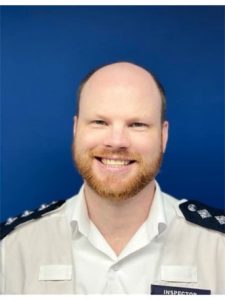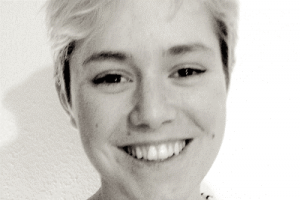Like so many other events this year, our 2020 Inter Faith Week event took place online. This didn’t deter the faith community of Tower Hamlets and beyond coming together to mark the occasion – we were pleased to be joined by nearly 50 attendees. We had a fantastic line up of speakers; for those that could not attend, the event was recorded and is available here.

Our first speaker was Janet Daby MP, Shadow Minister for Faith, Women and Equalities. Janet paid tribute to the hard work and dedication of faith leaders, volunteers and congregations throughout the pandemic. She acknowledged that there has been much disruption for faith communities due to the closure of places of worship, and confirmed that she works hard to represent the views of faith leaders to the government, stating that faith and places of worship should not be an afterthought. Janet also highlighted the importance of religious education starting from a young age, to aid community and cohesion. The Minister went on to talk about bereavement and the impact that will be felt for some time due to so many people losing loved ones throughout the pandemic.
 Our next speaker was Senior Imam at East London Mosque, Sheikh Mohammed Mahmud. The Imam spoke about the hard work that went into making the mosque covid secure. He explained about the calls to prayer being adapted to tell people to pray at home. Prayers are now recorded and broadcast via Facebook, YouTube and Zoom and classes are also carried out online. Counselling services are also done remotely – with weddings taking place via Zoom! The Imam spoke about the many ways that they supported the local community, for example by running a food bank and supplying PPE to other mosques and care homes. You can see presentation slide here.
Our next speaker was Senior Imam at East London Mosque, Sheikh Mohammed Mahmud. The Imam spoke about the hard work that went into making the mosque covid secure. He explained about the calls to prayer being adapted to tell people to pray at home. Prayers are now recorded and broadcast via Facebook, YouTube and Zoom and classes are also carried out online. Counselling services are also done remotely – with weddings taking place via Zoom! The Imam spoke about the many ways that they supported the local community, for example by running a food bank and supplying PPE to other mosques and care homes. You can see presentation slide here.
Acting Chief Inspector Pete Shaw was next and he explained that the police are focused on the ‘three E’ approac h to the public and coronavirus law – engage, encourage, explain. He said that enforcement as an approach is low down on their list of priorities, especially with faith communities. He highlighted the importance of worshipping safely at a venue and underlined that wearing a mask is a requirement by law. Pete then gave an overview of the current guidance around individual prayer and gatherings such as weddings, before giving some tips on how to make a venue covid secure.
h to the public and coronavirus law – engage, encourage, explain. He said that enforcement as an approach is low down on their list of priorities, especially with faith communities. He highlighted the importance of worshipping safely at a venue and underlined that wearing a mask is a requirement by law. Pete then gave an overview of the current guidance around individual prayer and gatherings such as weddings, before giving some tips on how to make a venue covid secure.
Following on from Pete’s advice, Abigail Knight, associate director of LBTH Public Health and Polly Ashmore, public health specialty registrar, defined the guidance further. Highlighting the circumstances in which places of worship can be open:
- Independent prayer;

- Service broadcasting;
- Funerals (with up to 30 people), and linked ceremonial events (such as ash scattering, with up to 15 people), with social distancing maintained;
- Education and training;
- Childcare purposes and supervised activities for children;
- Support groups;
- Essential services, inc blood donation and food banks;
- To provide medical treatment.
Full details can be seen on the presentation slides. Polly went on to explain about project starting in the near future that will involve engagement officer/s distributing PPE to places of worship in the borough. This will help get practical feedback on requirements. Abigail highlighted the Community Champions Network, which meets online each week and is a great way to stay up to date with all the latest advice and ask questions.

Lastly, Peter Okali, CEO of THCVS spoke about the funding that is currently available. The two main pots of funding at the moment are the LBTH small grants fund and the National Lottery.
LBTH Small Grants:
- Up to £1,000 for un-constituted groups of residents
- Up to £3,000 for constituted not-for-profit organisations.
- For local actions that support the dissemination of key messages around Test and Trace to a number of priority communities.
National Lottery Covid-19 Response Fund
- Who can apply: projects and organisations playing a vital role in helping their communities during the COVID-19 pandemic
- Priorities: people and communities who experience disproportionate challenge and difficulty as a result of the Covid-19 crisis
Please see the slides for more details. Peter also emphasised that THCVS are on hand for advice! They have a fortnightly email bulletin that can be subscribed to here, and always aim to reply to email enquiries the same day. THCVS can help with drafting constitutions, answer any questions on governance, and help with digital skills, and much more.